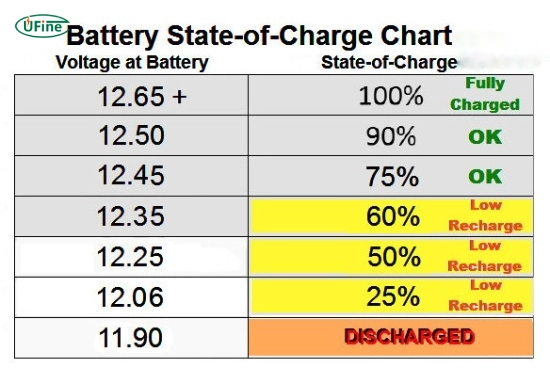You rely on your car every day, whether it’s for the daily commute, grocery runs, or spontaneous road trips. Yet, how often do you think about the heart of your vehicle—the car battery?
Imagine the sinking feeling of turning the key and hearing nothing but silence. It’s a moment no driver wants to experience. Understanding how long a car battery lasts is crucial for avoiding these unexpected and inconvenient situations. You’ll discover the average lifespan of a car battery and learn how to extend its life.
By the end, you’ll know exactly how to keep your car running smoothly and ensure you’re never left stranded. Curious about how you can save time, money, and stress by knowing this vital information? Let’s dive in and unravel the mystery of your car battery’s lifespan.

Factors Affecting Battery Lifespan
Your car battery is crucial for powering your vehicle, but its lifespan can vary greatly. Several factors play a significant role in determining how long your battery will last. Understanding these elements can help you make informed choices and possibly extend your battery’s life.
Climate Impact
Climate is a major player in your battery’s longevity. Extreme temperatures can either shorten or prolong its life. In hot climates, batteries tend to wear out faster due to increased evaporation of battery fluid. Cold climates, on the other hand, can slow chemical reactions, reducing battery efficiency.
Have you ever found your car struggling to start on a frosty morning? That’s the cold affecting the battery’s performance. Consider parking your car in a garage or shaded area to mitigate these climate effects.
Driving Habits
Your driving habits matter more than you might think. Short trips prevent your battery from fully charging, while longer drives allow it to recharge properly. Frequent starts and stops can strain the battery over time.
Think about your daily commute. Is it mostly short drives to the grocery store? You might want to plan a longer trip occasionally to give your battery a good charge. How can you adjust your driving to help your battery last longer?
Battery Type
The type of battery in your car also influences its lifespan. Lead-acid batteries are common and affordable but usually have a shorter lifespan compared to AGM (Absorbent Glass Mat) batteries, which are more durable and efficient.
If you’re considering a battery replacement, weigh the pros and cons of different types. Is investing in a high-quality battery worth the extra cost for you? It’s crucial to match your battery choice to your driving needs and climate.
By considering these factors, you can take proactive steps to ensure your car battery serves you well for as long as possible. What changes will you make to extend your battery’s life?
Signs Of A Dying Battery
Understanding the signs of a dying car battery can save you from unexpected troubles. Recognizing these signs early helps prevent getting stranded. Below are common indicators that your car battery may need attention.
Slow Engine Crank
A slow engine crank is a key sign of a weak battery. The engine might struggle to start. It may take longer than usual. This indicates the battery is losing power. Listen for unusual sounds during ignition.
Dim Lights
Check your headlights and interior lights. If they appear dim, the battery may be weak. Dim lights mean the battery isn’t providing enough power. This affects visibility and safety. It’s a clear warning of a failing battery.
Frequent Jump Starts
Needing frequent jump starts signals a battery problem. A healthy battery should hold a charge. If not, it might be time for a replacement. Jump starts are a temporary fix, not a solution.
Tips For Prolonging Battery Life
Car batteries don’t last forever. But you can extend their life. Following simple tips can make a big difference. These practices help your battery last longer and perform better.
Regular Maintenance
Check your battery regularly. Look for signs of wear and tear. Clean the battery terminals. Use a mix of baking soda and water. This prevents corrosion. Corrosion can reduce battery life. Inspect the battery case. Ensure there are no cracks or leaks. A damaged case can lead to battery failure. Regular maintenance keeps your battery in good shape.
Avoid Short Trips
Short trips can drain your battery. The engine doesn’t run long enough. It can’t fully recharge the battery. Plan longer trips when possible. This allows the alternator to recharge the battery. Consider using public transport for short distances. Save your battery for longer journeys. This simple change can extend battery life.
Secure Battery Connections
Loose connections can cause problems. They lead to poor electrical contact. Check the battery cables regularly. Ensure they are tight and secure. Use a wrench if needed. Secure connections ensure a steady power supply. It reduces the risk of sudden battery failure. This keeps your car running smoothly.

When To Replace Your Battery
Your car battery is the heartbeat of your vehicle. Knowing when to replace it can save you from unexpected breakdowns. Whether you’re planning a road trip or just heading to work, a reliable battery is crucial. But how do you know when it’s time for a new one? Let’s dive into the key factors.
Age And Performance
Most car batteries have a lifespan of three to five years. However, age isn’t the only factor. Performance matters too. If your headlights dim or your engine struggles to start, these are warning signs. Your battery might be aging faster than expected.
Consider how often you drive and the climate conditions. Extreme temperatures can shorten battery life. Think back to the last time you replaced your battery. Has it been close to that three-year mark?
Professional Testing
Not sure about your battery’s health? Professional testing is a smart move. Mechanics have the tools to measure your battery’s power and efficiency. Regular testing can prevent surprises.
Have you ever had your battery tested during a routine maintenance check? It’s a quick process that can provide peace of mind. Knowing your battery’s condition helps you plan for a replacement before it fails.
Warranty Considerations
Did you know your battery might be under warranty? Many come with warranties that cover replacement within a certain period. Check the documentation that came with your battery.
It’s worth considering if your current battery is still covered. If it is, replacing it could be less costly than you think. Have you reviewed your battery warranty lately? It might be time to do so.
So, when should you replace your car battery? Consider age, performance, professional testing, and warranty. Don’t wait for the day your car refuses to start. Act before it’s too late.
Choosing The Right Replacement
Choosing the right replacement for your car battery is crucial for maintaining your vehicle’s performance. If you’ve ever had a car battery die unexpectedly, you know the frustration. Picking the wrong replacement could lead to similar headaches. So, how do you ensure you’re making the right choice? Let’s dive into what you should consider.
Compatibility And Specifications
Your car’s battery isn’t just about getting the right size. It’s about matching the specifications perfectly. Consider the cold cranking amps (CCA) and reserve capacity. These numbers ensure your car starts in cold weather and powers essential systems. Check your owner’s manual for precise specifications. Have you ever bought a battery only to find it doesn’t fit? Avoid this by verifying your battery tray size and terminal position. Compatibility is key.
Brand And Quality
Not all battery brands are created equal. Some offer longer warranties and better performance. Opt for reputable brands known for their durability and reliability. Your car’s lifespan depends on quality parts; batteries are no exception. A friend once chose a cheaper brand, only to replace it within a year. Learn from these experiences and invest in quality. It’s worth the peace of mind.
Cost And Value
While cost is a factor, focus on value. A higher price might seem daunting but consider the long-term savings. A quality battery lasts longer, saving you from frequent replacements. Weigh the initial investment against potential future costs. Have you calculated the cost per year of different battery options? This simple math can guide your choice. Remember, value isn’t just about price—it’s about the performance you receive.
Choosing the right car battery replacement requires careful consideration. Ask yourself: does this battery fit my needs and budget? It’s not just about buying a new battery; it’s about making a wise investment in your car’s future.
Environmental Disposal Of Old Batteries
Proper disposal of old car batteries is crucial for protecting the environment. These batteries contain toxic chemicals that can harm ecosystems if not managed well. Understanding how to dispose of them responsibly can help preserve nature. Recycling and legal compliance are key steps in this process.
Recycling Options
Many recycling centers accept old car batteries. Some auto shops offer recycling services. They often have partnerships with recycling facilities. This ensures batteries are disposed of safely. Look for drop-off locations near you. Retailers sometimes provide discounts for recycling batteries. This encourages responsible disposal.
Legal Requirements
Disposing of batteries improperly can lead to fines. Laws vary by region but aim to prevent environmental damage. Some areas require businesses to collect and recycle batteries. Always check local regulations before disposal. This ensures compliance and avoids penalties.
Eco-friendly Practices
Choose recycling over throwing away batteries. It reduces waste and conserves resources. Consider using rechargeable batteries to minimize disposal needs. Encourage others to recycle their old batteries. Educating friends and family promotes eco-friendly habits. Safe disposal protects the planet for future generations.
Frequently Asked Questions
How Often Should I Replace My Car Battery?
A car battery typically lasts 3 to 5 years. Regular maintenance and inspections can help extend its lifespan. If you notice signs like dim headlights or slow engine starts, it might be time to replace it. Always check with a professional to ensure your battery is functioning properly.
What Affects Car Battery Lifespan?
Several factors can affect a car battery’s lifespan, including weather conditions, driving habits, and maintenance routines. Extreme temperatures can shorten battery life, while regular checks can prolong it. Using electronics like radios or chargers when the engine is off can also drain the battery faster.
Can I Extend My Car Battery’s Life?
Yes, regular maintenance can extend your car battery’s life. Keep the battery terminals clean and ensure it’s securely fastened. Avoid using electronics when the engine is off, and check the battery’s charge regularly. Routine professional inspections can also help detect issues early.
How Do I Know If My Battery Is Dying?
Signs of a dying battery include dim headlights, slow engine starts, and frequent need for jump-starts. If you notice these symptoms, it’s time to check your battery. A professional can test its charge and determine if it needs replacement.
Conclusion
A car battery’s life varies based on usage and care. Generally, it lasts 3 to 5 years. Regular checks can help extend its lifespan. Make sure to clean terminals and check connections. Avoid leaving lights on overnight. Extreme temperatures can also affect battery life.
Choose a quality battery for reliability. Always consult a professional if unsure. Proper maintenance keeps your car running smoothly. Remember, a healthy battery means fewer breakdowns. Keep an eye on its performance. Plan replacements proactively to avoid inconvenience. Your car will thank you with consistent starts and reliable operation.

